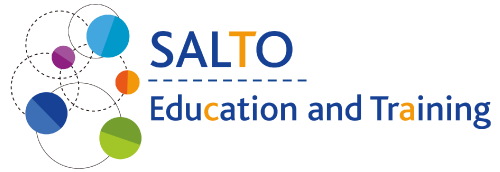SOCIAL INCLUSION REVISITED: ROLE MODELING IN EDUCATION
Main Info
TCA Description
Diversity, equity, equality, non discrimination are among
the features that democratic societies should seek to attain in order to honour
their “social contract” commitments towards their citizens. These
should also be priorities for applicants wishing to benefit from the Erasmus+
programme and it is true that they are often quoted as such in KA2
applications. Still, from identifying the less advantaged with a view to
preparing a robust application up to project implementation level, when social
groups most in need might prove difficult to reach and persuade, let alone to involve,
the route to inclusion needs to be adequately supported to yield fruit.
School is the first place where inequality might occur
as a result of gender, disability, educational difficulties, economic
disadvantage or different ethnic or migrant backgrounds; at the same time, for
some children it may be the only tool that can prevent school dropout and
marginalization.
In Greece the Role Models initiative was undertaken by
the Erasmus+ National Agency merely because of the potential it holds in terms
of social inclusion, namely the prevention of Early School Leaving.
The NA designed and applied intervention actions on a
solid scientific background that were much appreciated by schools and their
communities and provided useful, tangible results on the essence of social
inclusion. An additional component of the pilot programme was implemented in the Higher
Education sector. Psychology students received intensive training in order to
participate in peer counseling activities with 1st year university students at
risk of drop out.
This thematic monitoring seminar aspires to bring the
dialogue and practices on social inclusion, one step further by facilitating
the exchange of views among those who have strived to identify and address the
causes that (may) lead specific target groups to be excluded from the potential
that the 21st century Europe can offer to its citizens. Particular
emphasis will be given to good practice examples preventing and/or tackling
drop out in the School, VET and HE sectors.
Participants will also be encouraged to contemplate
the why (and possibly the “why not”)
and the how of inclusion and enrich
the notion of inclusiveness with their contributions.
·
To share practices and provide monitoring on ongoing
projects focusing on Early School Leaving and University dropout as social
inclusion impediments
·
Increase
awareness of Early School Leaving and University dropout as distinct social
exclusion patterns
·
Highlight and
maximise the potential of the Role Models initiative for preventing exclusion
and exchange good practice examples among NAs
·
Contribute to the discussion on the inclusion component
of the new programme
·
Identify potential synergies between the SE, VET, HE
sectors that could lead to new cooperation schemes in favour of inclusion
·
Participate in a friendly and fruitful exchange of
views, experiences, expectations on the above topics
Partners and participants
Pending booked places
Accepted places


